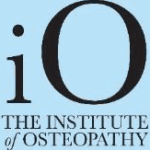Sleep is fundamental to our well-being, impacting our physical health, mental clarity, and overall quality of life. However, for many individuals, achieving restorative sleep can be a challenge. While there are various methods to improve sleep quality, one lesser-known approach gaining recognition is osteopathy. Osteopathy, a holistic healthcare practice, focuses on the interrelation between the body’s structure and its function. By addressing musculoskeletal issues and promoting balance within the body, osteopathy offers valuable strategies for enhancing sleep quality. In this article, we delve into the principles of osteopathy and explore practical tips and techniques to improve sleep.
Understanding Osteopathy and Sleep:
Osteopathy is founded on the principle that the body possesses self-healing mechanisms, and optimal health is achieved through proper alignment and function of the musculoskeletal system. When there are imbalances or restrictions within the body, it can disrupt various physiological processes, including sleep. Osteopathic practitioners employ hands-on techniques to identify and address these issues, facilitating the body’s ability to function optimally.
One common issue addressed in osteopathic practice is musculoskeletal pain, which can significantly impact sleep quality. Conditions such as back pain, neck stiffness, and joint discomfort often worsen during rest, leading to disrupted sleep patterns. Through osteopathic manipulation techniques, practitioners aim to alleviate tension, improve circulation, and restore mobility, thereby promoting relaxation and better sleep.
Tips and Techniques for Improved Sleep Quality:
- Postural Alignment:Osteopathic assessment often begins with evaluating the patient’s posture. Poor posture can contribute to muscle tension and alignment issues, leading to discomfort that interferes with sleep. Osteopathic adjustments focus on correcting postural imbalances, relieving strain on the muscles and joints. Practising good posture throughout the day, especially while sitting and standing, can also contribute to better sleep alignment.
- Breathing Exercises: Deep, diaphragmatic breathing is essential for relaxation and promoting restful sleep. Osteopathic practitioners may teach specific breathing techniques to enhance oxygenation and reduce stress levels. Incorporating regular deep breathing exercises into your bedtime routine can help calm the nervous system and prepare the body for sleep.
- Soft Tissue Manipulation:Osteopathic soft tissue techniques target areas of muscular tension and facial restrictions. Gentle manipulation of soft tissues helps release tightness and improve circulation, promoting relaxation and easing discomfort that may interfere with sleep. Self-massage techniques, such as foam rolling or using massage balls, can complement osteopathic treatment between sessions.
- Joint Mobilisation:Restricted joint mobility can contribute to discomfort and stiffness, particularly in the spine and extremities. Osteopathic joint mobilisation techniques aim to restore normal range of motion, reducing pain and enhancing comfort during sleep. Incorporating gentle stretching exercises targeting key joints before bedtime can help improve flexibility and promote relaxation.
- Stress Reduction:Chronic stress is a common impediment to quality sleep. Osteopathic philosophy emphasises the interconnection of the body and mind, recognising the impact of stress on physical health. Osteopathic practitioners may recommend stress reduction techniques such as mindfulness meditation, progressive muscle relaxation, or guided imagery to alleviate tension and promote relaxation before bedtime.
- Sleep Environment Optimisation:Creating a conducive sleep environment is crucial for restful nights. Osteopathic practitioners may provide guidance on optimising sleep posture, selecting supportive pillows and mattresses, and minimising environmental disturbances such as noise and light. Additionally, maintaining a cool, comfortable room temperature and establishing a consistent bedtime routine can further support quality sleep.
- Nutritional Support:Nutrition plays a significant role in overall health, including sleep quality. Osteopathic practitioners may offer dietary recommendations to support optimal sleep, such as avoiding caffeine and heavy meals close to bedtime, and incorporating sleep-promoting foods rich in tryptophan, magnesium, and melatonin. Balancing blood sugar levels throughout the day can also help regulate sleep-wake cycles.
Osteopathy offers a holistic approach to improving sleep quality by addressing underlying musculoskeletal issues and promoting overall well-being. By incorporating osteopathic principles and techniques into your sleep routine, you can enhance relaxation, alleviate discomfort, and cultivate restorative sleep patterns. Whether through postural alignment, breathing exercises, soft tissue manipulation, or stress reduction techniques, osteopathy offers valuable strategies for achieving restful nights and waking up feeling refreshed and rejuvenated. Prioritising your sleep health is essential for optimal functioning and vitality in all aspects of life.
Book your initial osteopathy consultation and treatment at mgosteopathy.com
#osteopathy #sleep #posture #pain #relief





